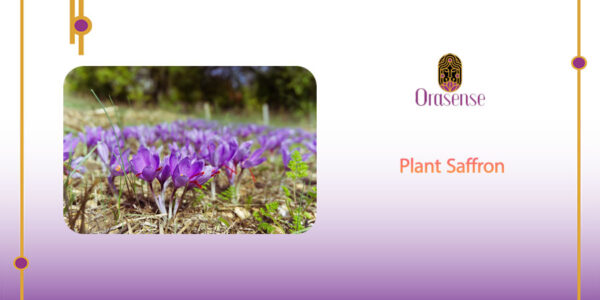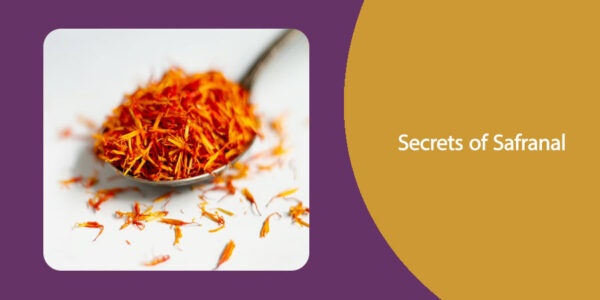
Saffron is a spice derived from the stigma and styles of the Crocus sativus plant. It is considered one of the most expensive spices in the world due to its labor-intensive harvesting process. The vibrant red threads of saffron are used in various culinary dishes. They have been used for thousands of years in traditional medicine for their numerous health benefits. In this article, you will read about saffron tea.
History of saffron use
Saffron has a rich history that dates back to ancient times. It is believed to have originated in the Mediterranean region and was widely used in Ancient Egypt, Greece, and Rome for medicinal purposes and as a dye.
The cultivation of saffron spread to other parts of the world, including Asia and Europe. It became a valuable commodity in international trade. Today, saffron is still widely used in many parts of the world for culinary and medicinal purposes. For more information on how to use saffron, refer to the related article.

Saffron tea
It is a popular beverage made by steeping saffron threads in hot water. It is enjoyed for its unique flavor, aroma, and many health benefits. Saffron tea can be consumed hot or cold, and can be flavored with other herbs and spices to create a unique and flavorful drink.
In this article, we will explore the many health benefits of saffron tea, including its ability to boost the immune system, relieve depression and anxiety, promote digestive health, lower blood pressure, and cholesterol, reduce the risk of heart disease, and have anti-inflammatory and anticancer properties. We will also provide instructions for preparing it and discuss potential side effects and risks.
Nutritional Value of Saffron Tea
Macronutrients
Saffron tea is a low-calorie beverage with only 1–2 calories per cup. It contains no fat, cholesterol, or sodium.
Micronutrients
It is a rich source of micronutrients such as manganese, vitamin C, and potassium. One cup of saffron tea (8 oz) contains approximately:
- Manganese: 0.6 mg (31% of the daily value)
- Vitamin C: 1.4 mg (2% of the daily value)
- Potassium: 26.4 mg (1% of the daily value)
- Iron: 0.1 mg (1% of the daily value)
- Magnesium: 0.5 mg (0.1% of the daily value)
- Vitamin B6: 0.01 mg (0.5% of the daily value)
- Vitamin B9 (folate): 0.3 mcg (0.1% of the daily value)
Phytochemicals
Saffron tea contains several important phytochemicals contributing to its health benefits, including crocin, crocetin, safranal, and kaempferol. These compounds have antioxidant and anti-inflammatory properties, which help protect the body against cellular damage and inflammation.
Additionally, saffron contains carotenoids, including zeaxanthin, lycopene, and beta-carotene, which are important for maintaining healthy vision and protecting against certain types of cancer.
It is a nutritious beverage with several important micronutrients and phytochemicals contributing to its many health benefits.

Health Benefits of Saffron Tea
- Boosts Immune System
It is known for its immune-boosting properties. It contains several antioxidants, including crocin and crocetin, which help protect the body against oxidative stress and free radical damage. These compounds have been shown to boost the production of white blood cells, which play a critical role in the body’s immune response. Additionally, saffron contains vitamin C, essential for maintaining a healthy immune system.
- Relieves Depression and Anxiety
Saffron tea has been shown to have mood-boosting properties and may help alleviate symptoms of depression and anxiety. Studies have shown that saffron may be as effective as some antidepressant medications in treating mild to moderate depression. Saffron contains safranal, which has been shown to have a calming effect on the nervous system and may help reduce feelings of anxiety and stress.
- Promotes Digestive Health
It has been used for centuries to promote digestive health. It is believed to have a soothing effect on the digestive system. It may help alleviate symptoms of digestive disorders such as bloating, indigestion, and gas. Additionally, it contains compounds that stimulate the production of digestive enzymes, which help the body break down and absorb nutrients more effectively.
- Lowers Blood Pressure and Cholesterol
Saffron tea may help lower blood pressure and cholesterol levels, risk factors for heart disease. Studies have shown that saffron may help dilate blood vessels, which can help improve blood flow and lower blood pressure. Additionally, saffron may help reduce LDL (bad) cholesterol levels while increasing HDL (good) cholesterol levels.
- Reduces Risk of Heart Disease
Saffron tea may help reduce the risk of heart disease by improving several cardiovascular risk factors. In addition to lowering blood pressure and cholesterol levels, it may help reduce inflammation, which can contribute to developing heart disease. Additionally, saffron contains potassium, important for maintaining healthy blood pressure and heart function.
- Anti-inflammatory Properties
It has been shown to have anti-inflammatory properties, which can help reduce inflammation in the body and may help alleviate symptoms of inflammatory conditions such as arthritis and asthma. Saffron contains several compounds, including crocetin and safranal, which have been shown to have anti-inflammatory effects.
- Anticancer Properties
Saffron tea contains several compounds that have been shown to have anticancer properties. Studies have shown that saffron may help inhibit the growth and spread of cancer cells, particularly in breast, ovarian, and lung cancers. Additionally, saffron contains several antioxidants that help protect the body against cellular damage and may help reduce the risk of cancer.
It is a healthy beverage that offers numerous health benefits. From boosting the immune system and promoting digestive health to reducing the risk of heart disease and cancer, saffron tea is a versatile and effective addition to any healthy diet.
How to Prepare Saffron Tea
Ingredients

To prepare saffron tea, you will need:
- 1–2 cups of water
- 1-2 saffron threads (approximately 10–15 strands)
- Optional: honey or other sweeteners, lemon, cinnamon, or other flavorings
Step-by-step Instructions
- Bring the water to a boil in a small saucepan.
- Add the saffron threads to the boiling water and stir gently.
- Reduce the heat to low and let the tea simmer for 5–10 minutes.
- Remove the saucepan from the heat and let the tea steep for 5 minutes.
- Strain the tea into a cup using a fine mesh strainer or cheesecloth.
- Add honey or other sweeteners, lemon, cinnamon, or other flavorings as desired.
- Enjoy your warm and fragrant saffron tea!
Tips for Making the Perfect Cup
- Use high-quality saffron threads for the best flavor and health benefits.
- Allow the tea to simmer for 5–10 minutes to extract the full flavor and nutrients from the saffron.
- Do not overheat or boil the tea, as this can cause the saffron to lose its flavor and nutritional value.
- Experiment with different flavorings, such as honey, lemon, or cinnamon, to find your favorite way to enjoy saffron tea.
- Saffron tea can also be served chilled or over ice for a refreshing summer drink.
Possible Side Effects and Risks
While saffron tea is generally considered safe when consumed in moderation, there are some potential side effects and risks to be aware of.
- Potential Allergic Reactions
It may cause allergic reactions in some people, particularly those with allergies to plants in the lily family. Symptoms of an allergic reaction may include hives, itching, swelling, difficulty breathing, and anaphylaxis. If you experience these symptoms after consuming saffron tea, seek medical attention immediately.
- Dosage and Overdose Concerns
Consuming large amounts of it may cause digestive issues, including nausea, vomiting, and diarrhea. Additionally, consuming too much saffron may cause toxicity symptoms, including yellowing skin, eyes, mucous membranes, confusion, dizziness, and numbness. Consuming no more than 1–2 grams of saffron per day is recommended to avoid these risks.
- Interactions with Medications
Saffron may interact with certain medications, including blood thinners, antidepressants, and sedatives. If you take any medications, consult your healthcare provider before consuming it to avoid potential interactions.
- Use During Pregnancy and Breastfeeding
While saffron tea is generally considered safe for most people, pregnant and breastfeeding women should exercise caution. Saffron may stimulate contractions and should be avoided during pregnancy to avoid potential complications. Additionally, insufficient information is available to determine the safety of saffron during breastfeeding, so it is recommended to avoid consuming it during this time.
It is a safe and healthy beverage when consumed in moderation. However, it is important to be aware of potential side effects and risks, particularly for those with allergies, taking medications, or pregnant or breastfeeding. As always, it is recommended to consult with your healthcare provider before adding it to your diet.
For more information about the benefits of saffron for the skin, refer to the related article.
Conclusion
Saffron tea has been shown to offer numerous health benefits, including boosting the immune system, relieving depression and anxiety, promoting digestive health, lowering blood pressure and cholesterol, reducing the risk of heart disease, and exhibiting anti-inflammatory and anticancer properties.
It is a delicious and aromatic beverage and a great addition to a healthy diet. With its many potential health benefits and relatively low risk of side effects, it is an easy and enjoyable way to support overall health and wellness.
To experience the health benefits of saffron tea, consuming no more than 1–2 grams of saffron per day, either as a hot or cold beverage or added to food, is recommended. Remember to use high-quality saffron threads and experiment with different flavorings to find your preferred way to enjoy it. As always, consult with your healthcare provider before adding it to your diet, particularly if you are pregnant, breastfeeding, or taking any medications.




